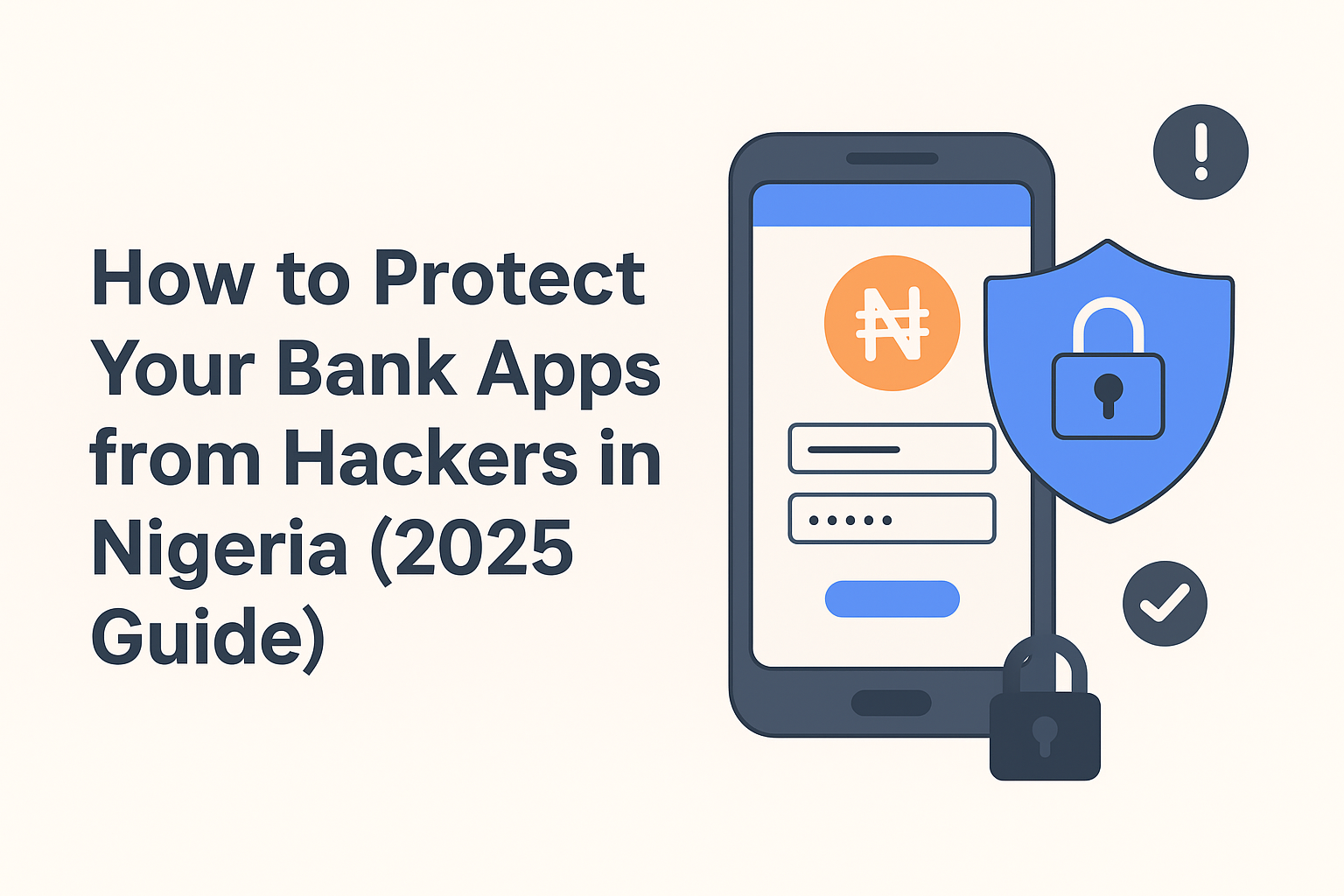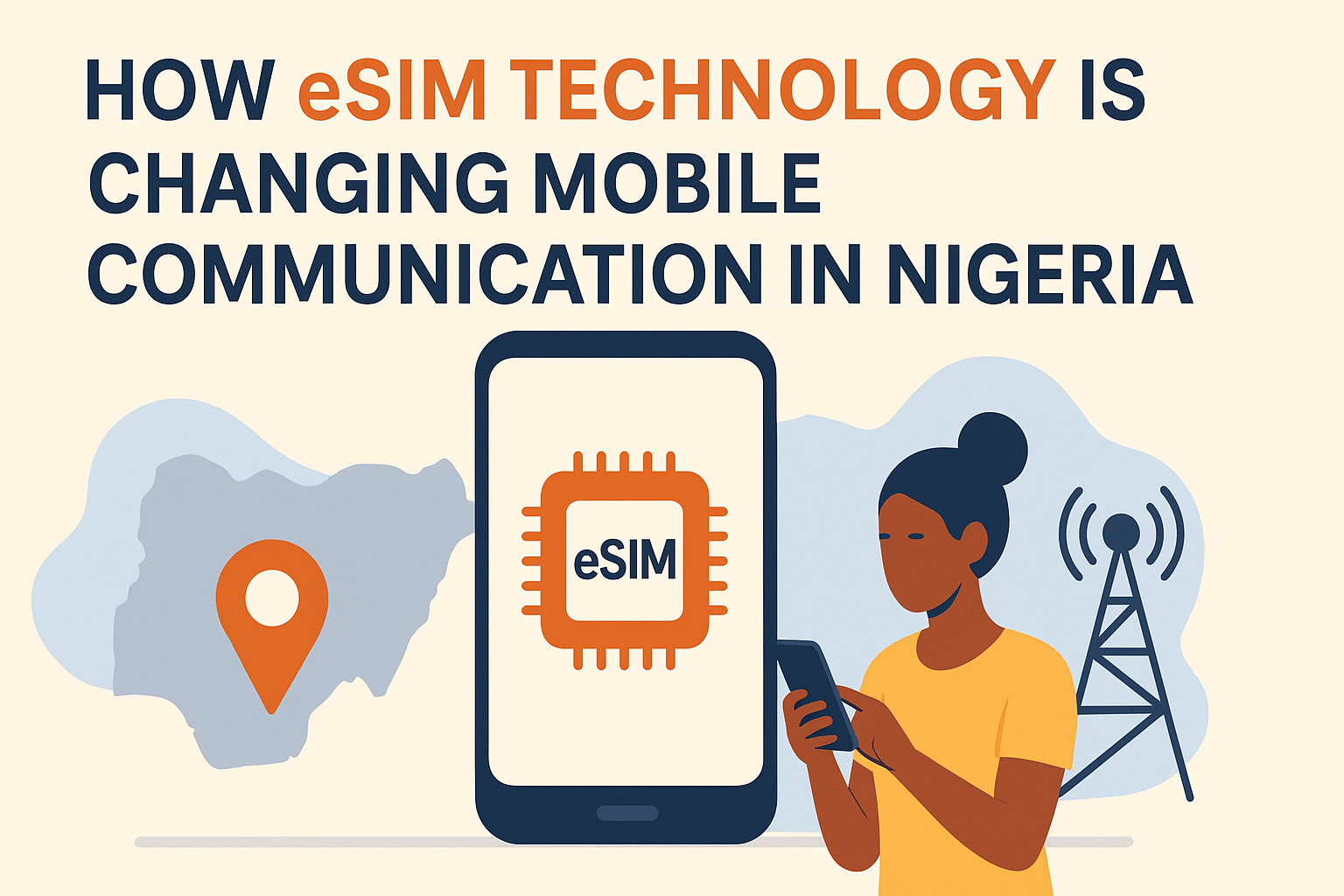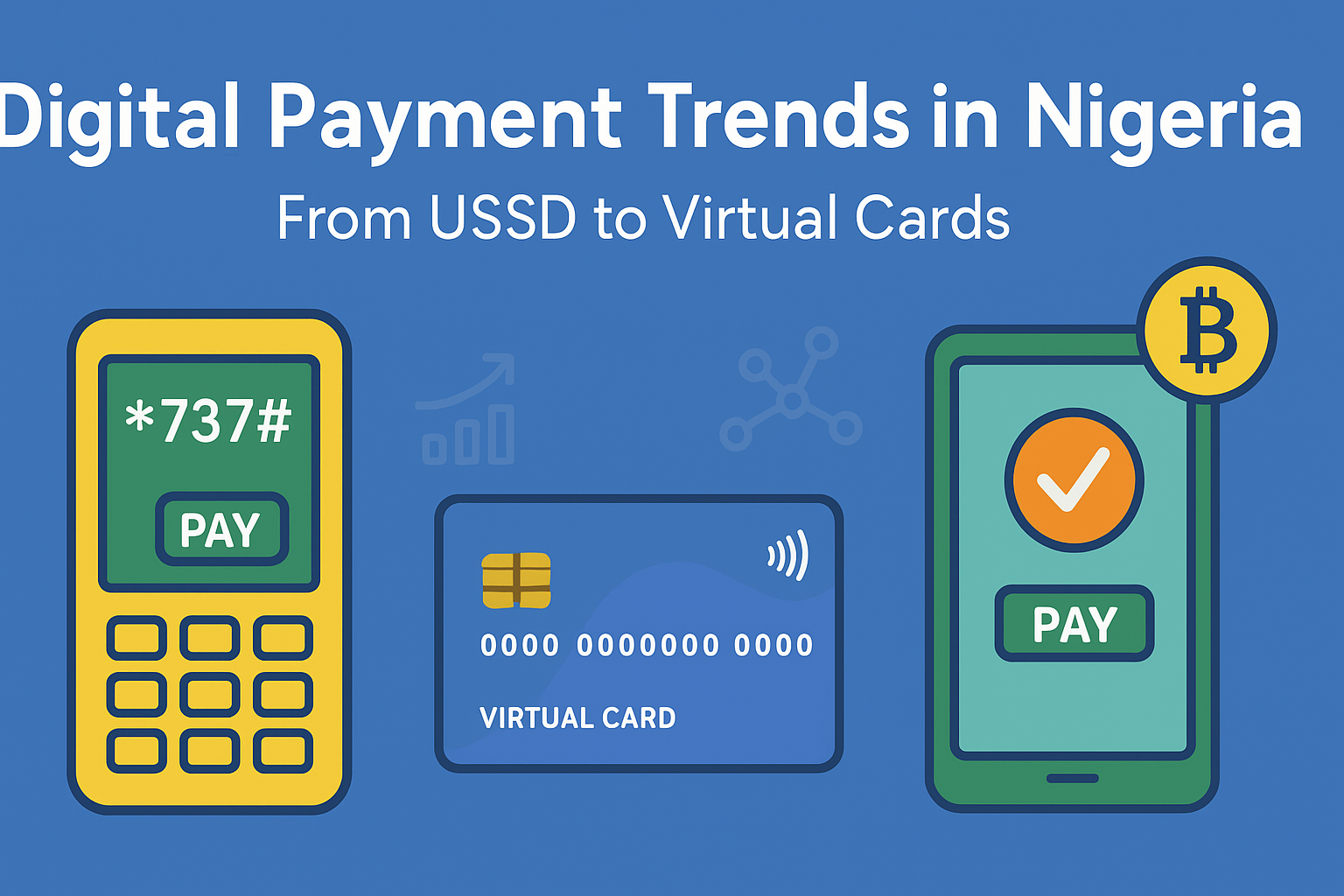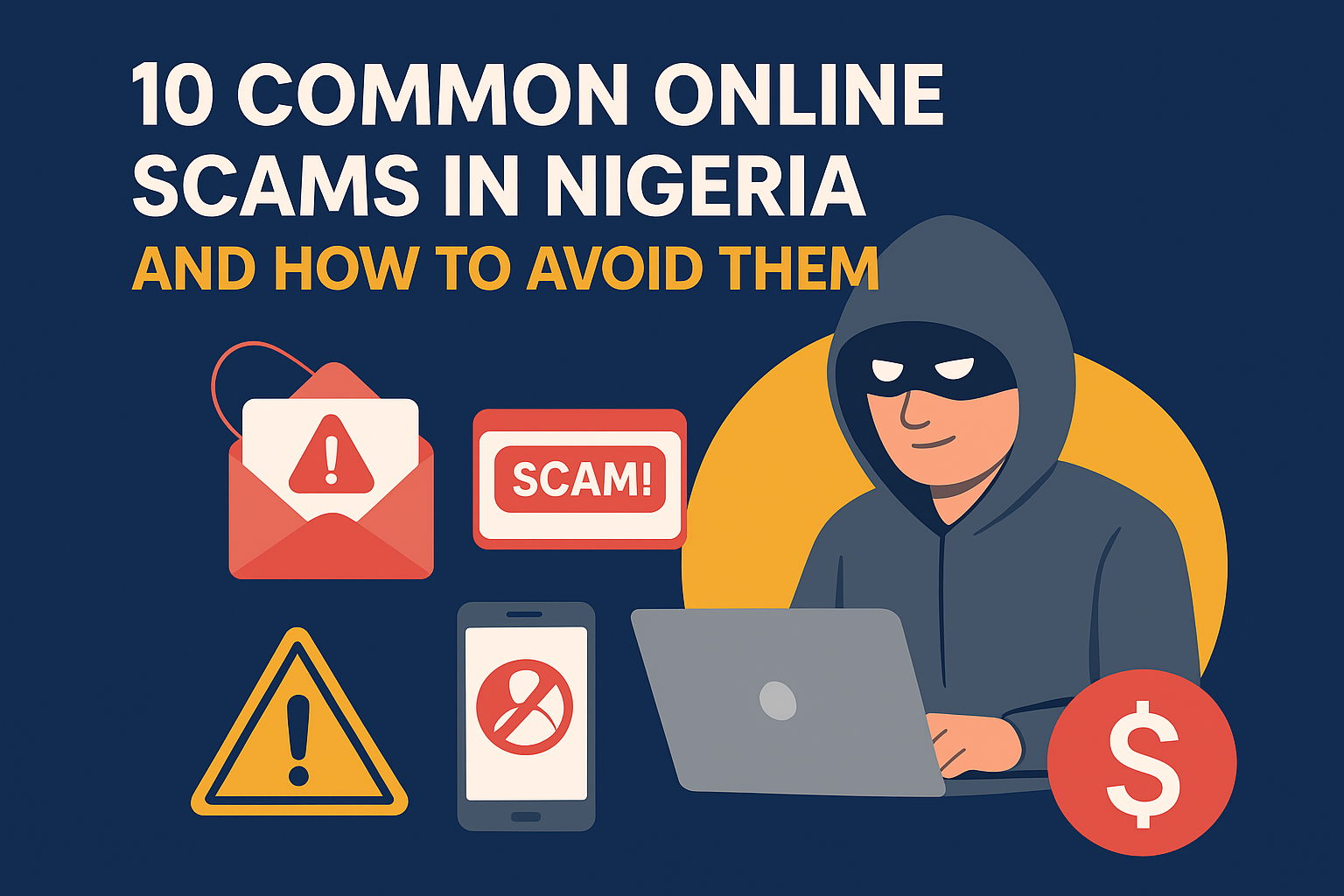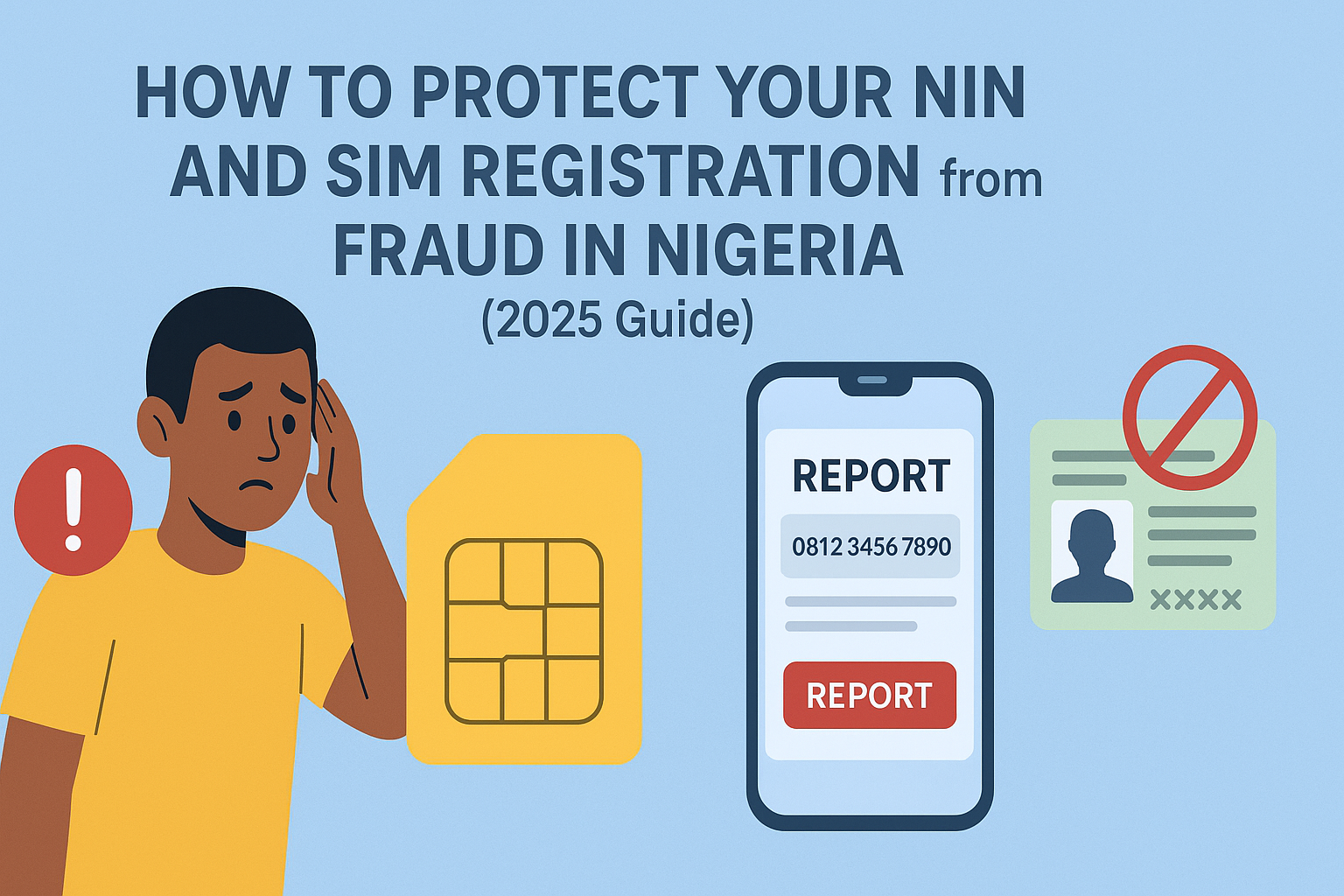How to Secure Your Nigerian Bank Apps from Hackers in 2025 (Complete Guide)Introduction
Mobile banking has transformed how Nigerians manage money. From GTBank’s 737 app to UBA’s Leo and Zenith’s Z-Mobile, millions rely on their bank apps for daily transactions. But with this convenience comes a growing threat: hackers and cybercriminals targeting mobile banking apps.
In 2025, Nigeria continues to witness an increase in phishing attacks, SIM swaps, and fraudulent apps designed to steal sensitive banking details. If you use mobile banking apps from GTBank, Zenith, Access, UBA, First Bank, or other Nigerian banks, protecting your account is no longer optional — it’s a necessity.
This guide will show you practical, step-by-step ways to protect your bank apps from hackers in Nigeria.
Why Hackers Target Nigerian Bank Apps
Bank apps contain highly sensitive information:
- Login credentials (username, PIN, passwords)
- Account balances and statements
- Transfer access to third parties
- Card details for payments
For hackers, compromising your bank app means instant access to your funds. They may use:
- Phishing links that mimic your bank’s official app
- SIM swaps to intercept OTPs
- Malware apps that steal login credentials
- Weak passwords or reused PINs
Understanding these threats is the first step toward protection.
Read also: How to Protect Your NIN and SIM Registration from Fraud in Nigeria (2025 Guide)
Practical Ways to Protect Your Bank Apps in Nigeria
1. Download Only Official Bank Apps
Never download banking apps from random websites or unofficial app stores. Always use Google Play Store (Android) or Apple App Store (iOS). Nigerian banks like GTBank, Zenith, Access, and UBA publish their apps only on official stores.
???? Tip: Check the publisher’s name (e.g., “Guaranty Trust Bank Plc”, not “GTB Apps Ltd”).
2. Enable Two-Factor Authentication (2FA)
Most Nigerian banks now support two-factor authentication. Beyond your PIN or password, 2FA requires a second layer of verification (OTP, fingerprint, or token).
For example:
- GTBank uses hardware tokens for added security.
- Zenith Bank offers SMS OTP and soft tokens.
- UBA and Access Bank apps support biometric logins.
Always activate this feature in your banking app’s settings.
3. Use Strong and Unique Passwords
Hackers often exploit weak or reused passwords. Avoid using birthdays, phone numbers, or common PINs like “1234.”
Instead:
- Use at least 8–12 characters with letters, numbers, and symbols.
- Avoid reusing passwords from social media.
- Update your banking PINs and passwords regularly.
4. Keep Your Phone Updated
Cybercriminals exploit outdated operating systems. Ensure your Android or iPhone is running the latest updates. Security patches fix loopholes that hackers may use to infiltrate your device.
???? Don’t ignore software updates, even if they seem inconvenient.
5. Avoid Using Public Wi-Fi for Transactions
Public Wi-Fi networks in airports, cafés, or hotels are hotspots for hackers. They can intercept your data while you log in to your bank app.
If you must use Wi-Fi, consider using a VPN (Virtual Private Network) for extra protection.
6. Watch Out for Phishing Scams
Phishing remains one of the most common tricks in Nigeria. Hackers send fake SMS or emails pretending to be your bank. They may say:
“Your account has been blocked. Click this link to reactivate.”
Never click suspicious links. Instead, contact your bank directly via their official customer service lines.
7. Use Biometrics Where Possible
Fingerprint and facial recognition logins are more secure than passwords alone. Most Nigerian banks now integrate biometric login options.
Even if hackers know your PIN, they can’t bypass your fingerprint.
8. Secure Your SIM Card
SIM swap fraud is rising in Nigeria. Hackers impersonate you at telecom offices to get a new SIM, intercepting OTPs. To prevent this:
- Set a SIM lock PIN via your phone settings.
- Register your SIM with accurate details.
- Immediately report suspicious activities to your telecom provider.
9. Install Mobile Security Apps
Use trusted antivirus apps (such as Avast, Kaspersky, or Norton) to detect malware and prevent malicious apps from spying on your data.
10. Regularly Monitor Your Bank Statements
Always check your account history for suspicious transactions. Report unauthorised withdrawals immediately to your bank.
What to Do If Your Bank App Is Compromised
If you suspect that your bank app has been hacked:
- Immediately contact your bank’s fraud helpline.
- Block your account or ATM card via USSD or official channels.
- Change your login details (PIN, password, biometrics).
- Report suspicious messages or numbers to your bank and the NCC.
The Future of Mobile Banking Security in Nigeria
As cyber threats increase, Nigerian banks are adopting stronger protections:
- AI-powered fraud detection
- Digital tokens replacing SMS OTPs
- Improved biometric verification
- Stronger collaboration between NCC, banks, and telecoms
But no matter how advanced security gets, your vigilance as a customer remains the strongest defence.
Conclusion
Protecting your bank apps in Nigeria is not just about technology — it’s about habits. By downloading only official apps, using strong passwords, enabling 2FA, and avoiding phishing scams, you drastically reduce your chances of being hacked.
In 2025, cybercrime will continue to evolve. But with the right precautions, you can keep your hard-earned money safe.
At ENGRMKS & CO., we help businesses, organisations, and individuals strengthen their digital security and online presence. If you’re looking to protect your platforms, build secure websites, or need IT consultancy in Nigeria, our team is ready to assist.
???? Contact ENGRMKS & CO. today and safeguard your digital future.


